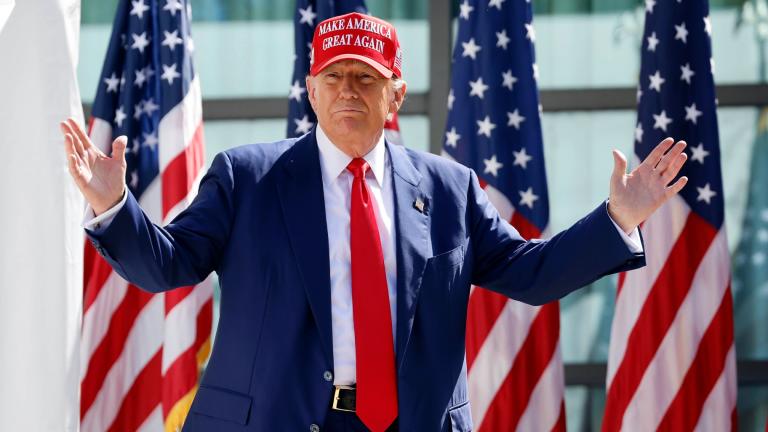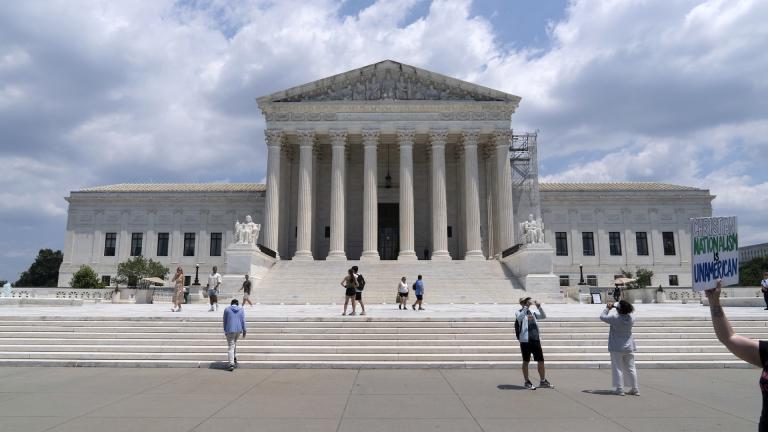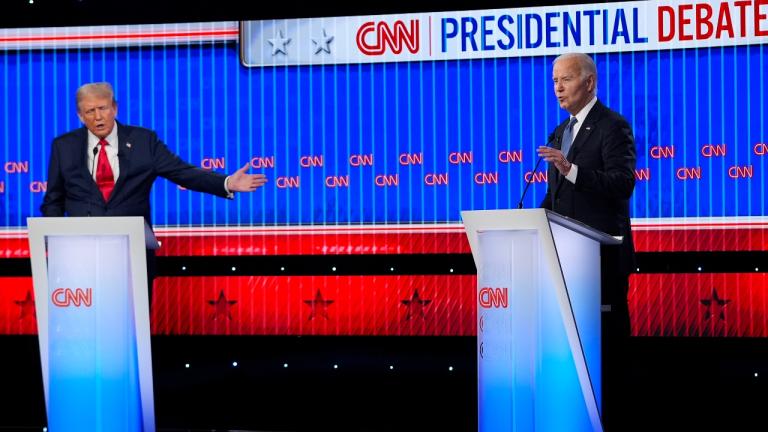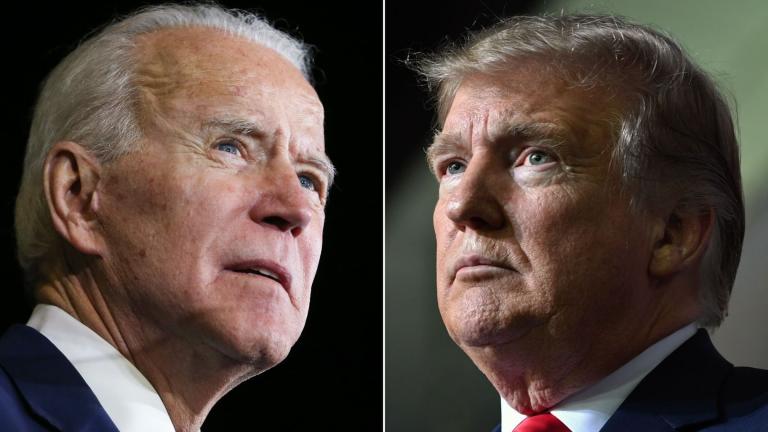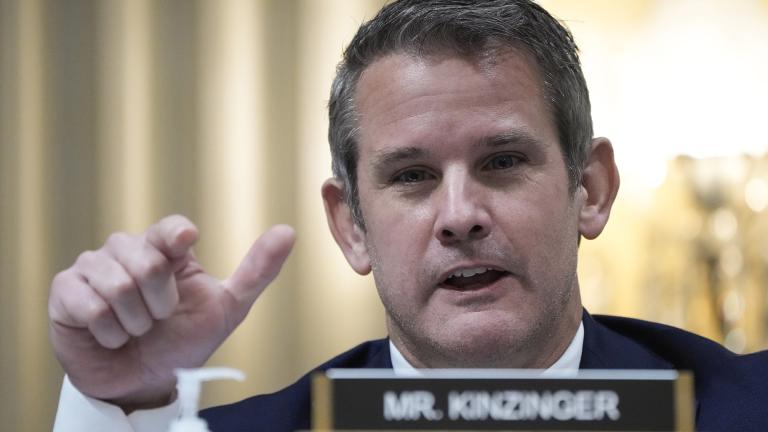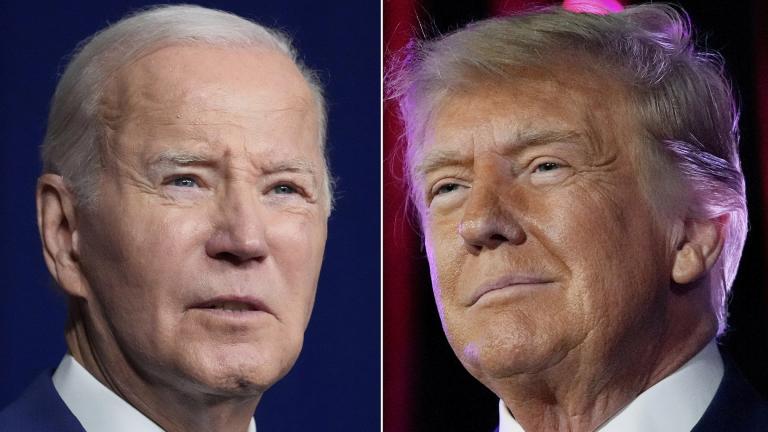After spending the weekend at the military hospital where he’s being treated for COVID-19, President Donald Trump was discharged Monday evening.
Many of the president’s allies and members of his team have also tested positive for the coronavirus, including White House press secretary Kayleigh McEnany, former New Jersey Gov. Chris Christie and Wisconsin Sen. Ron Johnson.
The election is now just over four weeks away. Democratic presidential nominee Joe Biden is ahead by an average of 8.5 points nationally, according to RealClearPolitics. In the top six battleground states — Wisconsin, Michigan, Pennsylvania, North Carolina, Florida and Arizona — Biden is ahead by 4 points.
“We don’t know exactly how the coronavirus diagnosis for President Trump is playing,” said Tom Bevan, co-founder and president of RealClearPolitics. “There’s the tangible aspect of it, which is with just four weeks left in this campaign, the president has sort of been put on the sidelines for half of that time, that is not good for this campaign.”
Bevan said there are also intangible aspects of Trump’s diagnosis that will impact the campaign, including how voters process the information.
“Is coronavirus back in the headlines?” Bevan said. “Is that bad news for Donald Trump because of his handling of the virus thus far? Is it generating sympathy for him among some voters, perhaps in the swing states? We don’t know the answer that, we probably won’t know the answer to that for a couple more days.”
As Trump recovers, there are two more presidential debates on the horizon, currently scheduled for Oct. 15 and 22. Meanwhile, the vice presidential debate is set for Wednesday.
While there isn’t much evidence that debates substantially move voters who have already made up their minds, they do present an opportunity to provide information to those who are undecided, said Laurel Harbridge-Yong, associate professor of political science at Northwestern University. Though there are fewer undecided voters this year than in 2016.
“For the vice presidential debate, I think both because of the lack of policy substance in the previous presidential debate, as well as the ages of the presidential candidates, the vice presidential debate may take on more significance,” Harbridge-Yong said.

